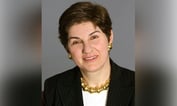PIMCO bond manager Bill Gross is warning investors that the Treasury’s retreat from credit creation will slow down GDP and limit price/earnings ratios, depressing stocks and helping bonds.
Writing in his February monthly investment outlook, Gross said that a declining budget deficit and the beginning of the Federal Reserve’s tapering of bond purchases are gradually withdrawing a significant source of growth in the economy — which could only be ameliorated through an increase in private sector activity.
But because such private sector activity has not been forthcoming, the PIMCO manager sees narrower economic horizons ahead, saying “the days of getting rich quickly are over, and the days of getting rich slowly may be as well.”
The latest commentary from the manager of the world’s largest bond fund reads like an edutaining lesson in basic finance, explaining through colorful examples the role credit plays in a modern economy.
Gross’ thesis is that all the things people look at as measures of valuing stocks, bonds, home prices and the like — be they P/E ratios or interest rates — depend ultimately on the availability of credit.
In an island-based economy where crops could be traded for livestock, a hot commodity like marijuana might see its P/E ratio accelerate from 1 pig to 3 pigs, he humorously illustrates.
“In order to keep this system going,” he writes, “you need more pigs or more credit in order to continue. But you’re out of pigs. A funny thing now happens in this capitalistic South Sea island and mainly to the price of marijuana. It traded last year at 3 pigs to 1, but since you’re out of pigs and credit, the price collapses. Grass goes to zero because there is no more credit; you have no more pigs to pay for it.”
That dynamic of available credit and consumer demand plays out thusly in the money market:
“If there was only one dollar to lend and someone was desperate to have it, the interest rate would be usurious. If there was one trillion dollars of credit and no one was eager to borrow for some reason or another, then the rate would be .01% like it is today and for the past five years in my personal money market account.”








 February 05, 2014 at 09:26 AM
February 05, 2014 at 09:26 AM










